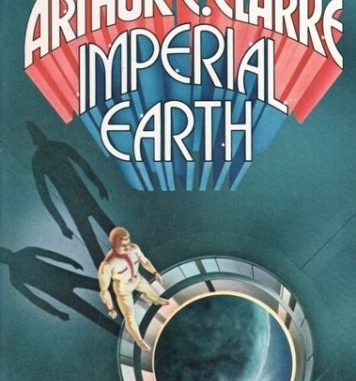
Perhaps the most vaunted era of sci-fi is that of the late 50s to early 80s. A time when what is now known as hard sci-fi was king and writers seemed to have more literary freedom to allow for their imaginations to run wild. Among of the pantheon of writers who exemplified this era was Sir Arthur C Clarke, a veritable giant in the genre. Though he possessed a very well-known bibliography, among his more obscure works was “Imperial Earth,†a tale of interplanetary economics, cloning, and subtle sociopolitical commentary.Â
Taking place in the far-flung year of 2276, the story centers around Duncan Makenzie as Titan’s de facto ambassador to Earth in route for the United States’ quincentennial celebration (the book was published in time for the real United States’ bicentennial in 1976.) On the surface, Duncan is on Earth to discuss his lunar colony’s concerns for the hydrogen market they rely upon, as well as to continue his family line. The Makenzie’s, starting with the grandsire of the clan Malcom, have cloned themselves from the genetic material of their predecessor to ensure the continuation of the specific thought processes of Titan’s “ruling dynasty.†What starts as an ostensibly standard procedure voyage swiftly becomes an investigation of black market conspiracies and corporate betrayal.
Similar to other English writers in the sci-fi and fantasy genre such as Sir Terry Pratchett and Douglas Adams, Sir Clarke injects a continuous stream of underlying humor throughout the work. Various portions of the book involve side tracks or asides referring to myriad historical figures, places, and events, often from a quizzical “modern†perspective. One of the primary supporting characters is in fact a clone of George Washington, now serving as caretaker of Washington DC (which functions as a city-sized museum) and curator of the Smithsonian. Sir Clarke does well in tossing in cheeky nods to history that will surely elicit a chuckle out of any amateur historian.
The book isn’t without its flaws though. Far and away “Imperial Earth†has a problem with plot focus. Numerous threads and side stories are hinted at throughout the story, but never come close to actualization prior to the end. With this being a standalone novel and no apparent notes left behind to allow for a continuation of the story, it unfortunately leaves much unanswered for the reader.
Sir Arthur C Clarke earned his place among the Mt. Rushmore of science fiction with his various celebrated works, but perhaps blow the dust off of this one if you stumble upon it in your local bookstore. You just might be in for a fun surprise and a trip through the solar system to boot. Sometimes the road less traveled can be just as fun as Main Street.

Leave a Reply